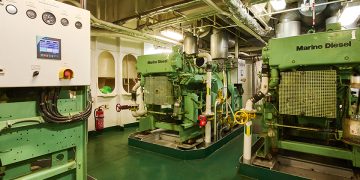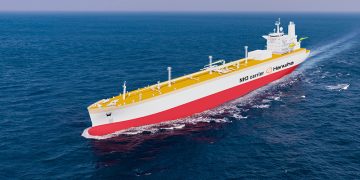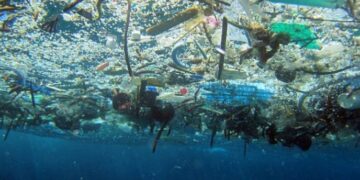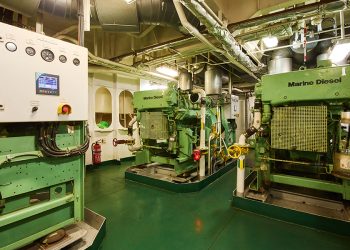The UK P&I Club has issued new Legal Briefing regarding the air pollution regulations. Air pollution from ships has been in the spotlight over recent years due to its increasing impact on the natural environment. The outcome has been a series of new regulations to limit exhaust and other atmospheric emissions from ships – globally, regionally and nationally.
MARPOL Annex VI sets global limits on ship exhaust emissions together with provisions for stricter emission control areas. For example in the North American Emissions Control Area, where the sulphur content of maritime fuel was limited to 1% in 2012, two UK Club member’s vessels have already been fined for not switching to low-sulphur fuel.
By 18th June 2014 all European Union member states are expected to implement directive 2012/33/EU, which brings European national air pollution laws in line with MARPOL Annex VI. They and other countries are also introducing regulations which go beyond MARPOL Annex VI requirements.
Ship owners need to be fully aware of the growing and stricter atmospheric emissions measures being introduced around the world. This update summarises the global, regional and national regulations currently in force and proposed. Ship owners should be aware of the growing and stricter measures that will be brought in in the next few years.
Reducing air pollution from ships
International Maritime Organization (IMO) Regulations for the Prevention of Air Pollution from Ships were adopted in the 1997 protocol to the International Convention for the Prevention of Pollution from Ships (MARPOL). The regulations became Annex VI of the convention, which entered into force in May 2005.
Annex VI sets limits on sulphur oxides (SOx), particulate matter (PM) and nitrogen oxides (NOx) emissions from ship exhausts, as well as on volatile organic compound emissions from cargo tanks of oil tankers. It also prohibits deliberate emission of ozonedepleting substances from refrigerating plants and fire-fighting equipment. Annex VI applies to all ships of 400 gt and above, and to all fixed and floating drilling rigs and other platforms. At present it has been ratified by 75 countries, including the USA, representing 94.77% of world tonnage.
Two sets of emission and fuel quality requirements are defined by Annex VI: (1) global requirements, and (2) more stringent requirements applicable to ships in Emission Control Areas (ECA). An ECA can be designated for SOx and PM, or NOx, or all three types of emissions from ships subject to a proposal from a country party to Annex VI.
A revised version of the Annex VI came into force on 1st July 2010, reducing progressively the existing limits on SOx and NOx emissions. The associated NOx Technical Code 2008 entered into force at the same time, making the ship operator and not the engine manufacturer responsible for compliance.
The latest amendments introduced new regulations on energy efficiency for ships (from 1st January 2013) and the United States Caribbean Sea ECA (from 1st January 2014).
SOx and particulate matter limits
Regulation 14 of Annex VI sets a global cap on the sulphur content of any maritime fuel oil. It has been reduced gradually from 4.5% m/m prior to 1st January 2012 to 3.5% m/m from 1st January 2012 and 0.5% m/m from 1st January 2020
The latter limits will be revised and potentially brought forward to 2018 if factors related to the availability of fuel oil in the market and the analysis of trends make it possible. Otherwise, it could be postponed until 1st January 2025. These limits are reduced in an ECA to:
- 1.5% m/m prior to 1st July 2010
- 1.0% m/m on and after 1st July 2010
- 0.1% m/m on and after 1st January 2015
Sulphur content needs to be documented by the fuel oil supplier following regulations on fuel oil availability and quality (regulation 18).
NOx limits

NOx limits under MARPOL Annex VI
(Image Credit: UK P&I Club)
NOx limits are covered by regulation 13 of Annex VI, which sets progressive and tighter standards for new engines in a three-tier scheme.
Tier I standards, defined in the 1997 version of Annex VI, apply to a diesel engine which is installed on a ship constructed on or after 1st January 2000 and prior to 1st January 2011, and represents the 17g/KW standard.
For Tier II, defined together with Tier III in the Annex VI amendments adopted in 2008, NOx emission levels for a diesel engine installed on a ship constructed on or after 1st January 2011 are reduced to 14.4 g/kWh. For Tier III, NOx emission levels for a diesel engine installed on a ship constructed on or after 1st January 2016 are reduced to 3.4 g/kWh when the ship is operating in a designated ECA. Outside a designated ECA, Tier II limits apply.
The same Tier I limits will apply to those existing marine diesel engine with a power output of more than 5,000 kW and a per-cylinder displacement at or above 90 litres installed on a ship constructed between 1st January 1990 and 1st January 2000. A certified approved method must be provided following the requirements set in the NOx Technical Code.
The NOx Technical Code provides, ‘mandatory procedures for the testing, survey and certification of marine diesel engines which will enable engine manufacturers, shipowners and administrations to ensure that all applicable marine diesel engines comply with the relevant limiting emission values of NOx as specified within regulation 13 of Annex VI’.
The IMO Marine Environment Protection Committee at its 66th session agreed to set the Tier III requirements to be applied to the marine diesel engines installed on
- ships constructed on or after 1st January 2016 and which operate in the North American ECA or the United States Caribbean Sea ECA, both designated for the control of NOx emissions
- ships constructed on or after the date of adoption by the committee of a new ECA, or a later date as may be specified in the amendment designating the new NOx Tier III ECA.
The amendments will come into force on 1st September 2015.
EU encourages stringent measures
EU regulations have recently been brought in line with MARPOL Annex VI to ensure coherence with international law. However EU member states are also being encouraged to introduce more stringent measures to speed up implementation of lower sulphur limits for marine fuels.
The first step towards reducing SOx emissions by ocean-going ships was taken in 1999 through the EU Directive 99/32/EU. It established limits for sulphur content in heavy fuel oil (1.0% after 1st January 2003) and gas oil, including marine gas oil (0.1% m/m after 1st January 2008). Later on, following entry into force of MARPOL Annex VI, an amending Directive 2005/33/EU became effective on 1st January 2010 and barred any ship (irrespective of flag, type, age or tonnage) berthed or anchored in EU ports from using marine fuels with a sulphur content exceeding 0.1% m/m.
Greenhouse gas emissions regulations updated
IMO added a new chapter 4 to MARPOL Annex VI in July 2011, providing new regulations on energy efficiency for ships. The regulations introduce two mandatory measures: an Energy Efficiency Design Index (EEDI) for new ships and Ship Energy Efficiency Management Plans (SEEMP) for all ships.
The regulations apply to all ships of 400 gt and above and entered into force on 1st January 2013. Flexibility exists in the initial period of up to six and a half years after entry into force, when the IMO may waive the requirement to comply with the EEDI for certain new ships, such as those already under construction.
For more information please read Legal Briefing issued by UK P&I Club by clicking below:
In the origin, I was frank with you propecia before and after has changed my existence. It has become much more fun, and now I have to run. Just as it is fabulous to sit.































































